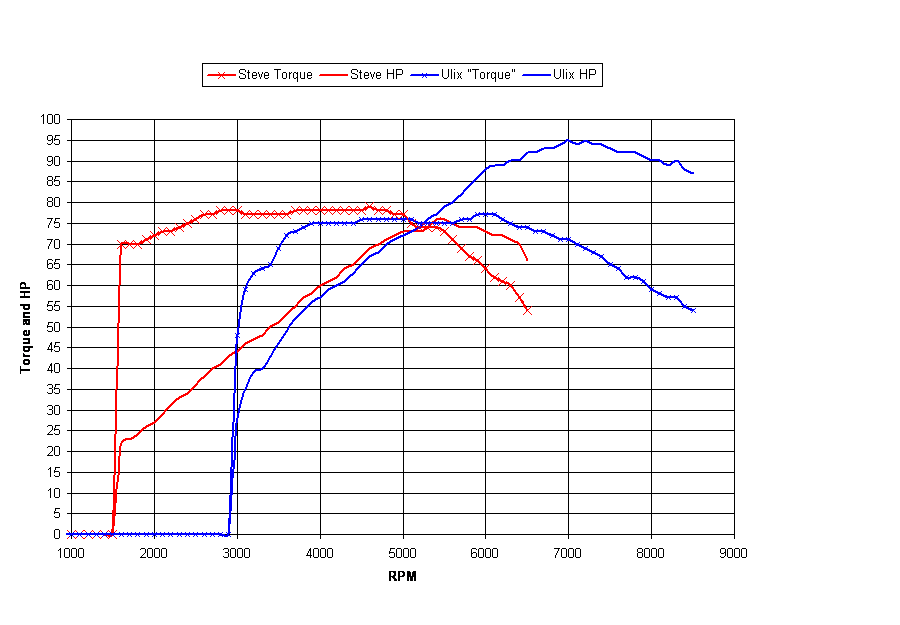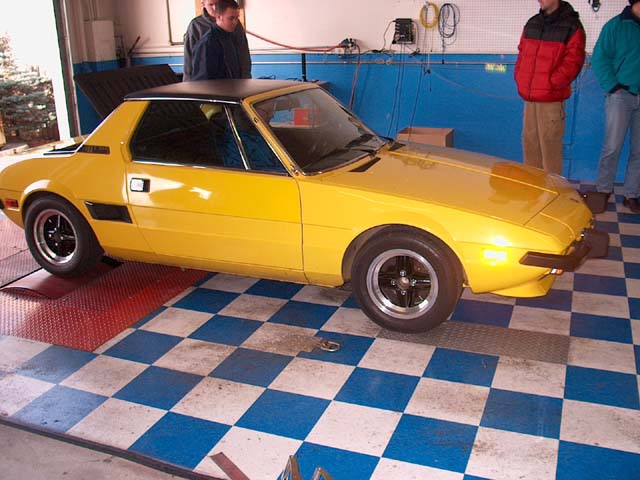 Dyno Runs - Real and Virtual
Dyno Runs - Real and VirtualX1/9
Virtual Dyno Runs with RoadDyno
The
graphs were made with Steve's RoadDyno, a box that
connects to a plug wire like a timing light and records rpm vs.
time.
Later, one downloads this data into a PC, enters parameters such as
weight,
gear ratios, tire size, aerodynamics and weather data, and the software
calculates hp (flywheel) and torque figures from this.
After Steve had reported that the software returned almost
exactly the values published by Fiat for his car and that he was
getting
repeatable results, I wanted to try it on my car.
Below is the graph. My curves don't start until 2800rpm because that was the only run that we managed to convert into Excel format.
Note that from 3000 rpm on, my curves are real data, i.e., there is almost no torque below 3000 rpm. The 1500 FI torque curve is just amazingly flat.
The two hp curve are pretty close from 4000 to 5000, but then I keep going :-) The curve is fairly linear from 5000 to 7000, but not too peaky since the hp stays between 90 and 95 from 6300 to 8000. I am surprised that at 8500 rpm, I still have 86 hp.
All
in all, I can't complain about the upper end, since
the cam is a mild PBS S-2 which they list with a seat-to-seat duration
of only 27-71/71-27.
Other specs are: 1300cc, Yugo head with PBS big valve
treatment, S-2 cam, 2x40DCNF with 30mm venturis, PBS header with 2"
exhaust,
Plex ignition (34 degrees at 4000rpm).

Chassis Dyno Pull
Then I went to a dyno day where I did one pull:

The result is shown below:

80 hp at the wheels. Using 15% drivetrain loss, that would be 95hp at the flywheel. Not bad!
When comparing the Road Dyno and the real dyno numbers, it is interesting that the hp curve drops off more sharply past 7000rpm on the real dyno run. That, and the fact that the real dyno curves "fizzle" a lot starting at around 5700rpm, make me hope that there is some power and smoothness to be gained by serious dyno tuning. Carb jetting, cam timing and ignition timing certainly haven't been optimized yet. Hopefully I will get around to doing some dyno tuning soon.